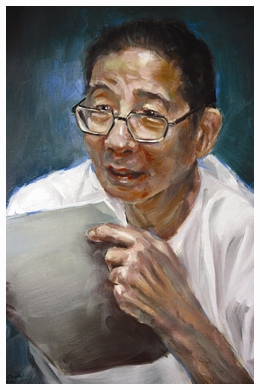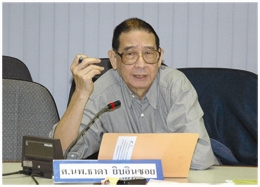The passing away of a good doctor and teacher
 The Thai medical circle has recently lost a valuable human resource.
The Thai medical circle has recently lost a valuable human resource.
Professor Dr Tada Yipintsoi or Arjarn Mor Tada as he was affectionately called by his students and colleagues alike passed away peacefully on Sunday January 9. He was 76 years old. A Royally-sponsored cremation was to be held on Sunday January 16 at Wat Klong Plae or Wat Nam Phood in Hat Yai district of Songkhla.
The late professor was instrumental in setting public health system in the southern border provinces which is in harmony with the culture, tradition and livelihood of the local people. His last held position was chairman of the board of Deep South Relief and Reconciliation Foundation (http://www.dsrrfoundation.org).
Professor Dr Tada graduated with a Bachelor’s Degree in Medical Science from Cardiff in the United Kingdom. After the graduation, he returned to Thailand to begin his medical practice at Siriraj hospital as a heart specialist.
Years afterward, he further his studies and earned two doctorate degrees in Physiology and Mathematics in the United States after which he taught in the US until he was named a professor in Physiology and Tropical Diseases. He returned home in 1980 and was named deputy dean of the Faculty of Medical Science of Prince of Songkhla University, Hat Yai campus in 1981. Eventually, he was promoted dean of the faculty.
Arjarn Mor Tada was best remembered as a kind-hearted teacher who appeared to have an unsatiable appetite for knowledge and who enjoyed imparting knowledge to his students. He was also the source of inspiration for his students.
During the government of Prime Minister Surayud Chulanont, Dr Thada was tasked to head a panel overseeing health problems in the southernmost provinces by then Public Health Minister Dr Mongkol na Songkhla.
Dr Supat Hasuwanakit, director of Chana district hospital, Songkhla province, who is a member of the board of the Deep South Relief and Reconciliation Foundation, said Dr Tada, in setting the health system for the far South, put special emphasis on three areas – safety for hospitals and health stations; management of basic information of the unrest situation in the region; and remedy for people affected by the violence. Dr Tada once said that installation of surveillance cameras alone was not enough to ensure safety for health facilities and personnel, but the medical staff must cultivate good relations with the local people, said Dr Supat.
Dr Tada once said that installation of surveillance cameras alone was not enough to ensure safety for health facilities and personnel, but the medical staff must cultivate good relations with the local people, said Dr Supat.
Dr Tada was also commended for allowing Islamic practice into state hospitals, for instances, Muslim people were allowed to greet their new-born babies in accordance with Muslim tradition and prayers were allowed for the dying.
MS Suppawan Pungrassami of Deep South Coordination Centre, Pattani said she was glad that she once had an opportunity to work with Dr Tada.
Although he was gone, he would still be remembered for years to come by many people in the far South.
